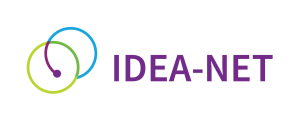Erasmus Brussels University applied sciences and arts – Brussels, Belgium
The activities that the department has carried out (in the last two years) with regard to equal access/inclusion/diversity are:
- support and counselling for students and university staff;
- lectures, workshops, seminars for students, faculty and non-teaching staff;
- public promotion (e.g. production of media content such as podcasts);
- improving digital accessibility;
The activities with the greatest impact in the context in which this program operates was training and public promotion because it created (and creates) a common mindset that it’s important that everyone has equal access to (higher) education. It doesn’t immediately make inclusion tangible such as the installation of a ramp for wheelchair users, but it ensures that everyone in the organisation is aware of the obstacles that a minority staff/students face and tangible improvements on physical, digital and social accessibility are easier to realize.
The last innovative practise/tool introduced at EBUASA when it comes to ensuring inclusion, diversity and equal access was the creation of ’A silent room’ for staff and students that need to get away from the many impulses on a campus or for students and staff who need space for prayer (inclusion for students/staff with neuro diversity, students/staff from different religious backgrounds, and students/staff who deal with mental health issues) Students and counseling staff were asking for a silent room for a long time, but it was never made a priority. A panel discussion with students and experts on diversity and inclusion created a breakthrough in the minds of our policy makers and silent rooms are now on the agenda for renovations on our campuses.
In addition to activities to support inclusion, EBUASA implements measures/activities to counter exclusionary and discriminatory practices through binding policy (legislation), recommendations/guidelines and preventive programmes.

Leadership program with growth values (Leiderschapstraject vanuit GROEI-waarden)
Brussels, Belgium
IDEA-net: Expanding the network of Inclusion, Diversity, Equity and Access (IDEA) practitioners in higher education through institutional capacity building
Project ref: 2022-1-NL01-KA220-HED-000089789

This project has been funded with support from the European Commission. This website reflects the views only of the authors, and the Commission cannot be held responsible for any use which may be made of the information contained therein.
